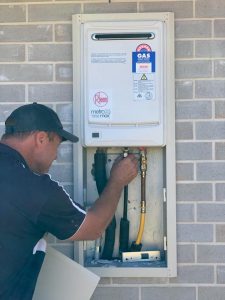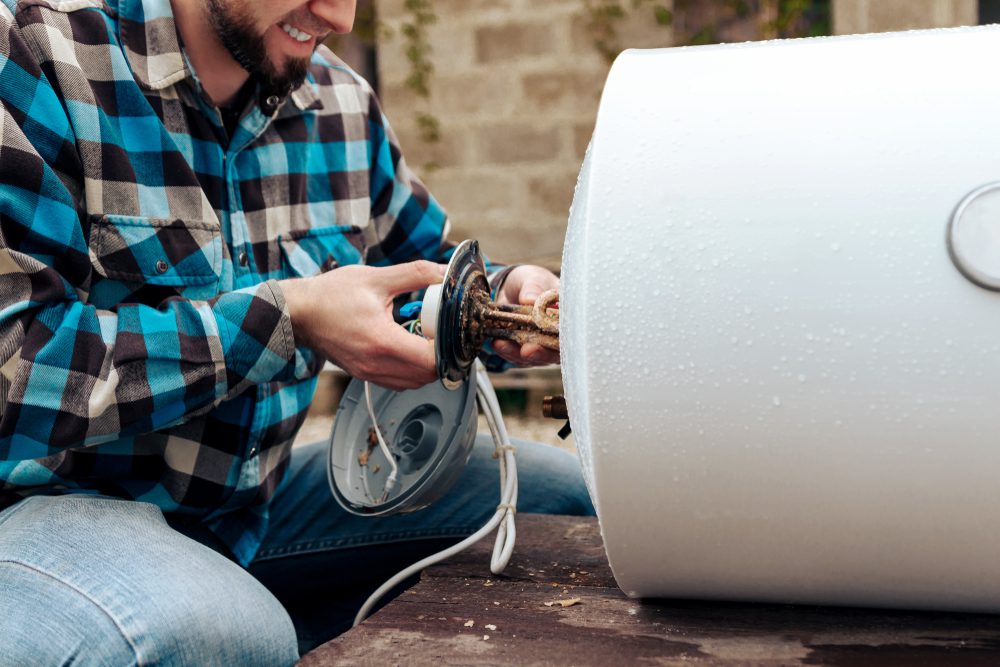Listed here below yow will discover lots of reliable resources on the subject of Is Your Water Heater Leaking?.

A hot water heater is one of the most essential standard home appliances that can be found in a residence. With hot water heater, you do not need to undergo the stress of heating water by hand every time there is a demand to wash, wash, or the dishes. There is constantly an opportunity that your water heating system would certainly act up as with many mechanical tools.
It is important to keep in mind any little malfunction as well as tackle it quickly prior to things leave hand. A lot of times, your hot water heater begins to malfunction when there is a build-up of sediments as a result of continuous usage. As a preventative measure, periodic flushing of your hot water heater is suggested to avoid debris buildup and stop practical failure.
Usual hot water heater emergencies as well as just how to handle them
Leaking water heater storage tank.
In this scenario, you ought to turn off your water heating unit, permit it to cool down, and also thoroughly look for the source of the problem. At times, all you need to do is to tighten a few screws or pipeline links in situations of minor leakages. If this doesn't function as well as the leakage lingers, you may need to use the services of a technician for a proper substitute.
Changing water temperature level.
Your water heating system can start creating water of various temperatures typically ice cold or hot hot. There might be a demand to change either the thermostat or the home heating device of your water heater.
Insufficient hot water
It may be that the water heating unit can not support the warm water need for your home. You could upgrade your water heating system to one with a bigger capacity.
Tarnished or stinky water
When this takes place, you need to understand if the problem is from the container or the water resource. If there is no amusing scent when you run cold water, after that you are particular that it is your hot water heater that is faulty. The stinky water can be brought on by corrosion or the buildup of microorganisms or debris in the hot water heater storage tank. You can try flushing out your storage tank or changing the anode if the problem lingers once you observe this. The function of the anode is to clean out microorganisms from your tank. Because the anode pole replacement needs an extensive expertise of your water heating unit, you will certainly require the aid of a professional.
Conclusion
Some homeowners overlook little warning as well as minor faults in their hot water heater device. This only causes further damage as well as a possible full breakdown of your appliance. You ought to deal with your hot water heater mistakes as soon as they come up to stay clear of even more expenses as well as unnecessary emergency problems.
With water heating systems, you don't need to go via the stress and anxiety of heating water manually every time there is a requirement to take a bath, do the laundry, or the recipes. Your water heater can start generating water of various temperatures normally ice hot or chilly warm. It might be that the water heater can't support the warm water demand for your apartment or condo. If there is no funny odor when you run cold water, after that you are specific that it is your water heating unit that is faulty. The odiferous water can be caused by corrosion or the accumulation of germs or debris in the water heater storage tank.
What’s Wrong With My Water Heater?
Not Enough Hot Water
You probably encounter this problem in the shower or while washing dishes. As you run your water, you’ll notice it starting to cool down. Turning up the hot faucet may not work, or it may only heat the water for a short period. Your hot water probably comes back and works normally one or two hours after you use it up.
If you’ve never had enough hot water, your heater may be too small for your home. If you haven’t had a problem until recently, there’s probably something’s wrong with your heater’s thermostat. Try adjusting it to see if you can feel a difference. Even if the thermostat’s working, the heating element itself could have burnt out. It’s also possible that a clog has restricted water flow into or out of the heater. Luckily, none of these problems are hard to fix, as long as you call them in early.
Water is Too Hot
Unregulated water heaters can make water dangerously hot. You probably have this problem if you’ve been scalded by your hot water. It’s also a likely culprit if you have trouble getting your faucets to produce a comfortable temperature. This problem is easy to fix, but it can also be a serious health hazard if you don’t address it. If you think your water is too hot, don’t doubt yourself; look into it!
Start by finding your heater’s thermostat and mark its position with a pen. Turn the thermostat to a cooler setting. Wait a couple hours to see if the problem is solved. If it isn’t, listen for boiling in the tank and look for water that comes out of the faucet steaming. In those cases, your temperature-pressure relief valve may be malfunctioning. This is a serious problem that can be dangerous, so you should have it looked at right away.
Discolored or Smelly Water
If all your water looks rusty or smells weird, there’s probably a problem with your pipes. If only your hot water looks weird, however, your water heater is probably at fault. Hot water discoloration comes in several varieties. It could look orange or brown-ish, taste rusty, or feel grainy. It could also look yellow or green-ish and taste gross or feel slimy. Either way, it’s a sign that there’s something wrong with your water heater’s tank.
Usually, hot water discoloration means sediment has built up in your tank. Sediment is made up of hardened minerals that accumulate on the inside of the water heater’s walls. When enough sediment builds up, it causes all kinds of problems–including your discolored water. Try flushing your water heater tank to clean out built up sediment. If the water still tastes rusty, your tank’s rust-preventing anode rod may have worn out. A pro can replace an anode rod easily, but without one, your tank could rust beyond repair relatively quickly.
Leaking
Water heaters can leak from several different places, and each leak means something different. If the leak is coming from a pipe above the heater, it’s possible the tank itself hasn’t been compromised. The cold inlet, hot outlet, and T&P pipes could all leak from above. Try tightening the problematic valve. If that doesn’t work, then the valve or pipe will have to be replaced.
If the leak is coming from the bottom of the tank, it’s important to determine exactly where it is. The leak could be coming out of the drain valve or your T&P valve below the tank. You can replace those valves and preserve the tank itself. If you notice the water tank itself leaking, however, that probably means it’s corroded beyond the point-of-no-return. Leaking water heaters are a big deal, so you should get yours replaced ASAP.
https://www.punctualplumberdallas.com/blog/whats-wrong-water-heater/

I was shown that report about Is Your Water Heater Leaking? through an acquaintance on our other web blog. In case you appreciated our blog posting if you please don't forget to pass it around. Thanks for your time. Kindly come by our site back soon.
Got trouble? Ring!